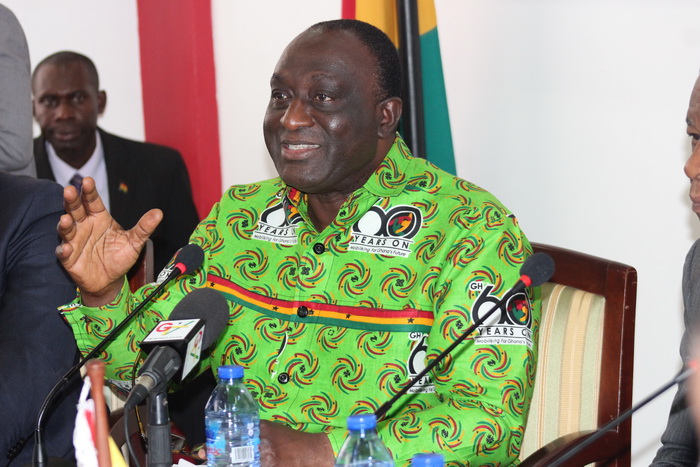
Govt baits investor for sugar factory
The government has initiated a new process to attract a strategic investor to acquire the assets of the Komenda Sugar Factory and manage its operations for viable commercial production.
The bid evaluation process has been completed by a transaction advisor and a recommendation has been made for consideration by the Ministry of Trade and Industry and the Cabinet.
The Minister of Trade and Industry, Mr Alan Kyerematen, told Parliament that he envisaged that the final decision in respect of the factory would be taken by the end of April 2019.
Komenda Sugar Factory
He was responding to a question posed by Dr Samuel Atta-Mills, the Member of Parliament (MP) for Komenda/Edina/Eguafo/Abrem, on why the factory had been shut down.
“Mr Speaker, the Komenda Sugar Factory, after its inauguration by the previous government on May 31, 2016, has been lying idle due to serious deficiencies in the planning of the project and other financial, technical and legal challenges,” the minister said.
He told Parliament that in September 2017, the ministry commissioned a technical audit of the factory and the findings were that a test run was never completed before the factory was inaugurated due to the unavailability of sufficient sugar cane for the test run.
Inauguration
He said secondly, the factory, on its inauguration, was not in a position to produce the required white refined sugar due to the absence of the processing component units, such as melt clarification units, vertical crystallizers and the dosing systems which were not fully installed during the test run.
According to the minister, overall, about 35 items had not been installed at the time the factory was inaugurated, although they were critical for the production of sulphur-less white sugar, while the land size available for the cultivation of sugar cane was far las than the 6,000 acres required to supply sugar cane to run the factory at full capacity.
Mr Kyerematen said there had been no out-grower scheme developed for small-scale farm holders to support a nucleus plantation for the factory, adding that generally the soil condition in the factory’s catchment area was not favourable and required significant application of both organic and inorganic fertiliser to improve yield.
Previous government
“Mr Speaker, the previous government, in late 2016, went through a process of divesting its majority shares to a private investor.
“However, the process was aborted due to the failure of the identified investor to fulfil the obligations under the sale and purchase agreement,” he said.
The minister said the ministry, in an effort to put the factory in viable commercial production, decided to initiate the new process, in collaboration with a transaction advisor and PwC.
When the NDC MP for Ketu North, Mr James Avedzi, asked whether the delay in the factory’s operations would affect the loan agreement, thereby compelling the government to bear further cost, Mr Kyerematen said he could not answer that question for now.
Gazetting bye-laws
In a related development, the MP for Sene East, Mr Dominic Napare, also asked the Minister of Local Government and Rural Development when regulations would be made to give effect to the provision notices in compliance with the Local Governance Act, 2016 (Act 396) to liberate the assemblies from the high cost of gazetting bye-laws and fee-fixing resolutions.
